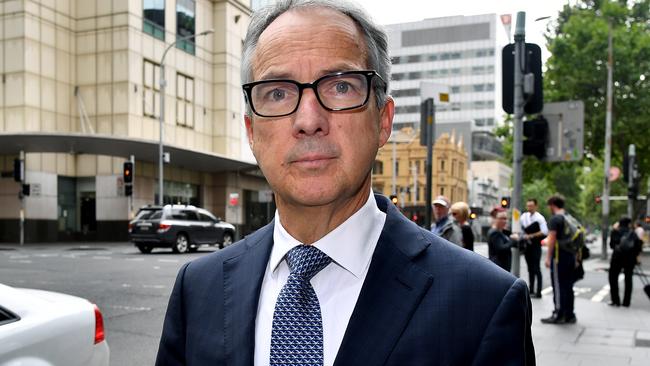Nicholas Moore: Macquarie pay model ‘better than the majors’
Macquarie CEO Nicholas Moore held up the investment bank’s pay model as ‘more powerful’ on accountability.

Macquarie Group’s retiring chief executive Nicholas Moore held up the asset manager and investment bank’s pay model yesterday as “more powerful” on accountability than those used by the major banks.
Mr Moore, the third bank CEO to appear before the Hayne royal commission, was quizzed about the company’s stockbroking and advice arm and a string of compliance failures that led to an enforceable undertaking in 2013. He was clear, though, that Macquarie’s remuneration structure, which has a relatively lower fixed pay, rewards staff with a share of profit and defers a large part of pay for senior employees, worked well to ensure accountability for bad decisions or behaviour.
“Profit share is more powerful than bonus,” Mr Moore said, noting no cap on the profit share.
“A deferral, I think, is very important, as we know decisions being made today have consequences over many years. And so making sure there is that alignment, over a period of time, I think is very important. That consciousness, we think, is the greatest safeguard we have in terms of the long-term health of the organisation and the client outcomes.”
But Macquarie, dubbed the Millionaire’s Factory, is often castigated over its high salary levels when the business is firing. Mr Moore was paid $19.7 million for the 12 months ended March 31, making him among the ASX’s top paid CEOs. After 10 years as CEO, Mr Moore earlier this year announced plans to step down and hand the reins to Shemara Wikramanayake.
During the fallout from the global financial crisis in 2009, Mr Moore was paid just $290,756.
Macquarie’s compliance woes centre on an enforceable undertaking with ASIC, which was imposed in 2013 for misclassification of clients, sloppy paperwork and a lax compliance culture. A document tendered to the royal commission showed the extent of the issues, highlighting weak controls across nine areas including advisers not providing advice in a compliant way, inadequate supervision of staff and underwhelming technology infrastructure to support complaints.
“With the benefit of hindsight it was fortunate that it was brought to our attention so we could take the steps we did,” Mr Moore said, noting that consequences to those involved included being fired, not being considered for promotion or in the case of the senior executive overseeing the area, a halving of his profit share.
KPMG gave Macquarie’s advice unit a clean bill of health three years after the incident but not before a significant amount of remediation. That including shifting oversight of compliance to the parent.
On the issue of paying commissions to mortgage brokers, Mr Moore cautioned on making any changes to a flat fee, despite risks around the broker being conflicted.
“I think the expression used is the sticker shock of actually seeing the upfront fee,” he said.



To join the conversation, please log in. Don't have an account? Register
Join the conversation, you are commenting as Logout